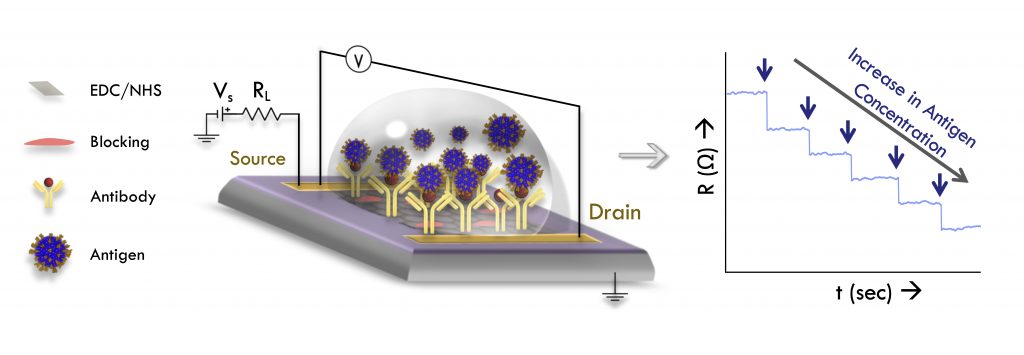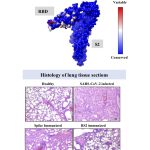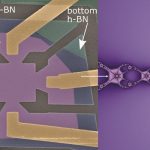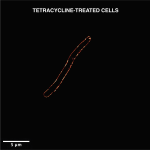
COVID-19 has posed an enormous global health challenge for the past few years. Currently, the most widely used diagnostic techniques such as chest computed tomography (CT) scans and RT-PCR tests are costly and time-consuming. To address this issue, a team led by Sonu Gandhi, Scientist D at the National Institute of Animal Biotechnology (NIAB), Hyderabad and Arindam Ghosh, Professor at the Department of Physics, IISc, has developed a highly sensitive graphene- based immunosensor for rapidly detecting the SARS-CoV-2 Spike S1 antigen.
The team built the sensor using a chemically modified graphene-based field-effect transistor (FET). To the graphene channel, they attached antibodies that specifically bind to the virus’ spike S1 antigen – the attachment was confirmed using optical spectroscopy and enzyme assays. Real-time change in channel resistance was monitored for detecting the antigen. The lowest concentration that the sensor could detect was 10 femtomolar.
A major advantage of FET sensors is their rapid detection and ultra-high sensitivity. The team reduced the fabrication cost by generating the spike S1 antibodies in-house. According to them, in the future, the sensor could also be miniaturised to develop a portable device for the diagnosis of COVID-19.






